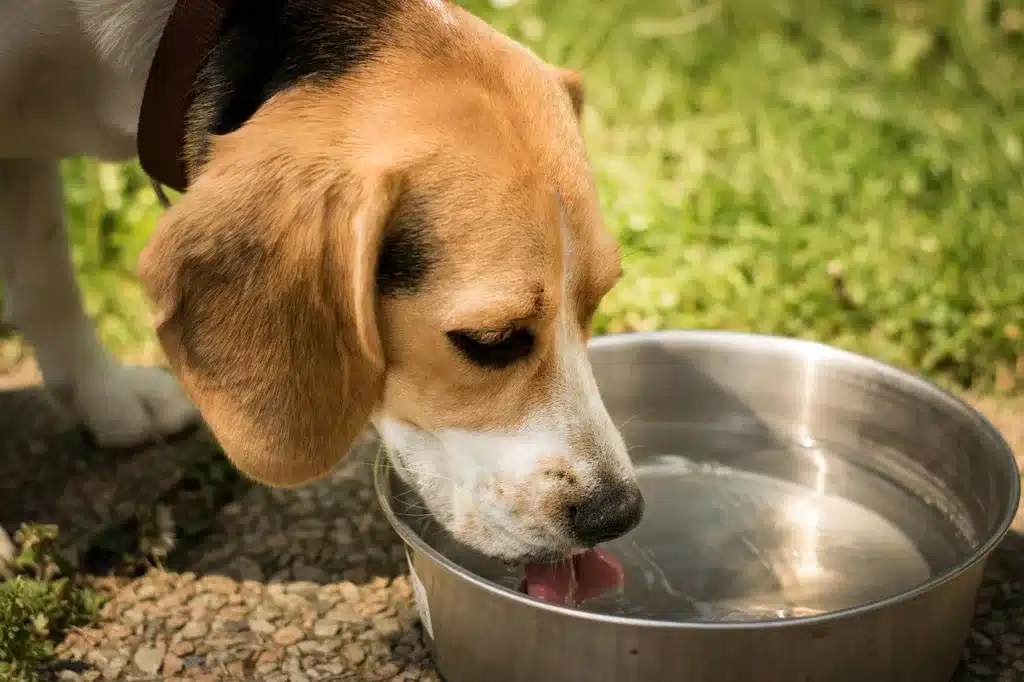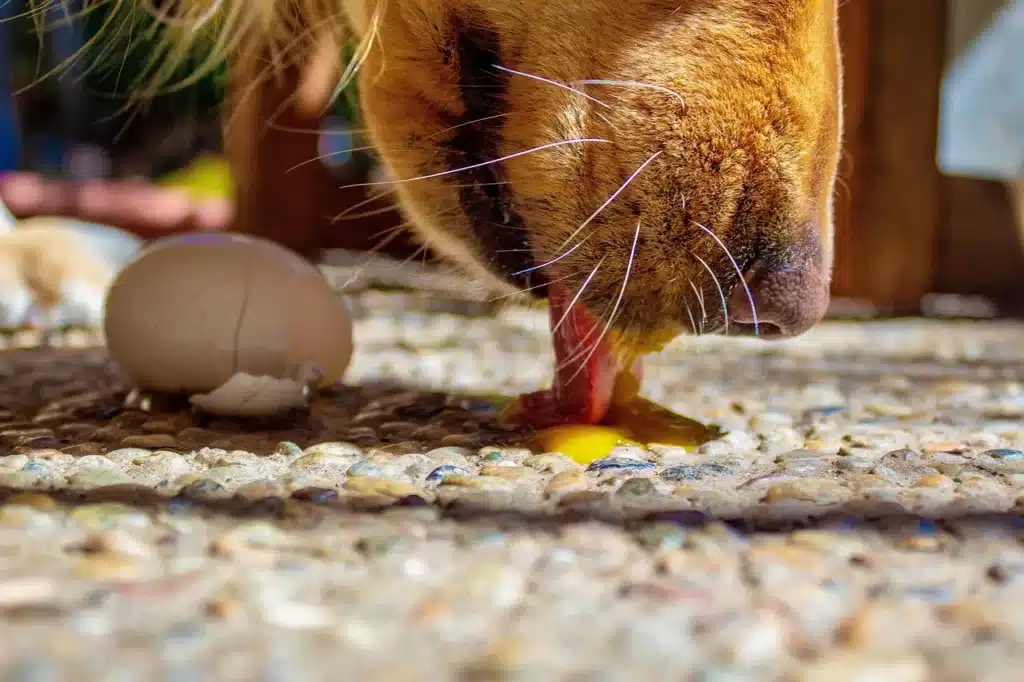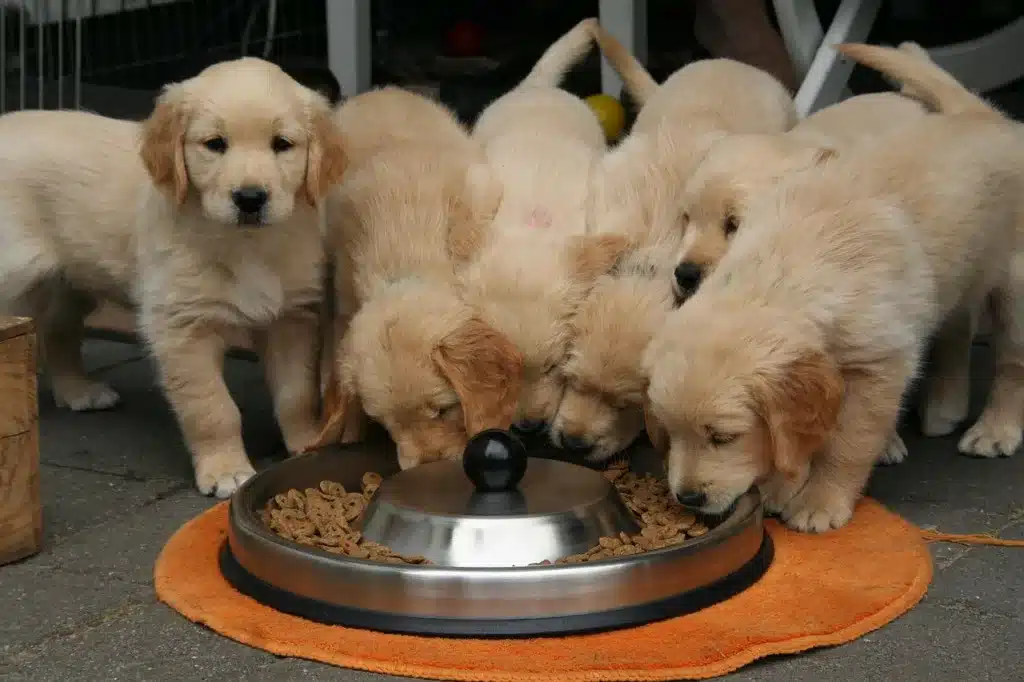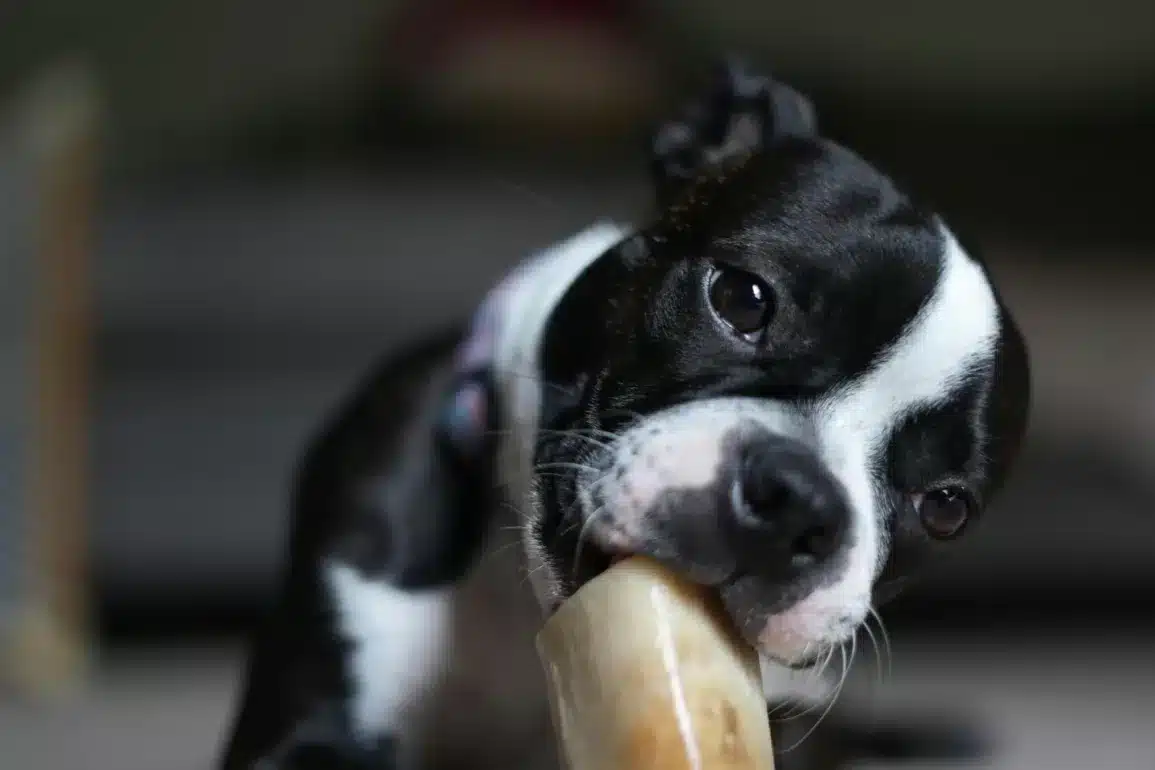You may be buying your dog the top brands of dog food, but that doesn’t necessarily mean their diet is complete. Kibble dry food and best canned dog foods may list all the proper ingredients and say they provide the best nutrition. However, your dog may not be absorbing everything it needs.
Dogs need a well-rounded diet, just like people. They have different needs and nutritional requirements that may not be met in packaged food.
Here’s how to make sure your dog is getting all the right vitamins and minerals it needs.
What Nutrition Does Your Dog Actually Need?

Your dog is a busy canine, running around in play, practicing its hunting and tracking skills, and making sure it greets its favorite person at the end of the day. In order to keep it happy and healthy, you need to provide your dog with a proper diet, space to run around, a safe place to sleep, and quality attention.
When it comes to diet, dogs need six key nutrient groups in their daily meals.
Water
Water is the most important nutrient group for any animal, or person. Water gives life, and a body can’t function without it. If you feed your dog (or cat) a diet that consists of mostly dry food, they’re getting very little water in their diet.
Canned, wet food, and adding natural-based fresh vegetables and fruits to their diets will add some moisture to your pup’s diet. However, the best way of making sure your dog gets enough water is to keep a clean bowl of fresh water near their food source. Make sure you change it out daily, or when it gets dirty or stagnant. Also, keep an eye on your pet and make sure they’re actually drinking from the bowl.
Carbohydrates
There are bad carbs, like grains and starches, that will do your dog more harm than good. However, the good carbohydrates will provide your dog with necessary vitamins like manganese, magnesium, the B-vitamins, fiber, and even antioxidants in carbohydrate-based fruits. Some great choices for ensuring your dog gets enough carbohydrates are:
- Oatmeal (natural and gluten-free)
- Quinoa
- Barley
- Sweet potato
- Brown Rice
Fats
Fats and fatty acids are a key ingredient in your dog’s diet. Fats give your dog energy and insulation, are highly digestible, and help transport nutrients through your dog’s body. They also support your dog’s weight and weight loss, and give your dog healthy skin and a shiny coat.
Omega-3 fatty acids and Omega-6 fatty acids are the top two fats your dog needs in their diet. Omega-3 fatty acids are often left out of commercial dry dog foods. You can add natural ingredients on top of your pup’s regular food to give flavor and make sure they’re getting the proper nutrients. These foods are dog-safe and contain fatty acids:
- Fish oils
- Fish like salmon and sardines
- Oils like vegetable oils, safflower oils, sunflower oil, and canola oil
- Flaxseeds and chia seeds
- Poultry and pork
Proteins
Proteins consist of amino acids. They’re necessary for your dog to build up and maintain muscle, have a healthy metabolism, and to give cellular function. High-quality meats, eggs, beef liver, and dairy are all great sources of proteins. Keep in mind your dog’s allergies and sensitivities. Natural, plain yogurt is a nice protein-filled treat, but only if your pup isn’t allergic to dairy.
The amount and quality of amino acids in the protein your dog gets from its food will depend on whether you give them the food raw or cooked. Check to make sure which process provides the most protein in the food you choose. Then, you can either feed it to them separately or on top of their regular food.
Minerals
Minerals are necessary for your dog. They help support muscle contractions, fluid balance, and nerve function. Some of the top minerals that a dog needs are:
- Calcium
- Phosphorous
- Iodine
- Iron
- Selenium
- Zinc
- Magnesium
Vitamins
Vitamins are essential ingredients for a dog’s immune system and metabolism. Dogs especially need vitamins that include:
- Thiamin
- Riboflavin
- B3, B5, B6, & B12
- Folic Acid
- Vitamins D, A, & E
Every vitamin and mineral is required for your dog’s health. Each one aids in your dog’s metabolic processes. If the food you give your dog is lacking in one or more of these vitamins, your dog’s health may take a toll.
Supplements, such as powders, liquids, and chews, can substitute for some vitamins and minerals that may be missing from commercial food diets. Add these to your pup’s bowl or give it to them in treat form each day to keep them healthy.
How Can You Tell If Your Dog is Getting Proper Nutrition?

A lot of commercial foods, and even organic and homemade diet plans, can be lacking in some of the basic nutrients that dogs require. The best way to find out if all nutrition groups and ingredients are covered in your dog’s diet is to check the dog food packages.
The list of included ingredients will help you to see which nutrients are lacking in pre-packaged foods. For organic and homemade diets, check menu plans and look up individual foods to see which nutrients are covered.
You can’t always know if your dog is absorbing all the nutrients it needs. You can monitor its eating and make sure it finishes the healthy meals. You can also keep an eye on its behavior. If your pup starts acting sluggish or sick, it may need something added to its diet.
You can also add vitamin and mineral-filled toppings to your dog’s regular dry or canned food such as:
- Leafy green vegetables
- Organ meats
- Sardines
- Egg yolks
Contact a canine nutritionist if you have more questions about your dog’s diet. It’s especially helpful if you have a dog with allergies or food sensitivities, senior dogs, or dogs with health issues. Your veterinarian can also make recommendations about your dog’s diet.
Final Thoughts

Providing a complete and nutritious diet for your dog can be a little tricky. Some important things to remember when adding natural ingredients to your dog’s meals are:
- Check all ingredients carefully
- Research any unfamiliar ones
- Only offer natural foods without additives
- Monitor for allergies
After you make sure your chosen foods and meal plans are safe, it’s time to sit back and watch your dog enjoy his special food! In the process of becoming healthy, you might both discover new foods that become your favorites. You’ll also have a happy, healthy, energetic dog to play with!


